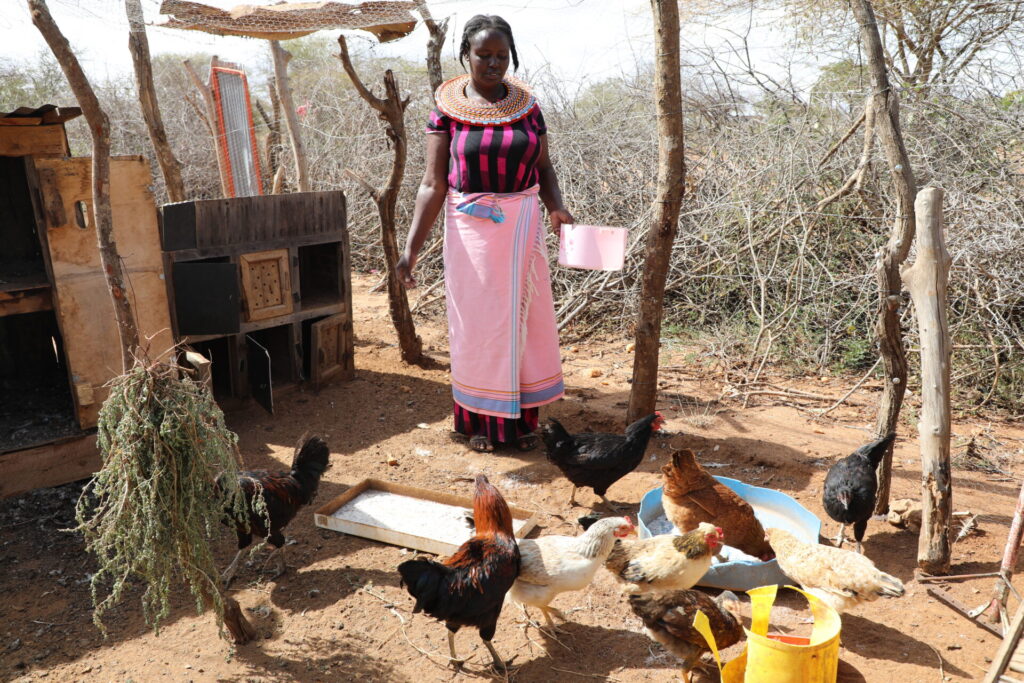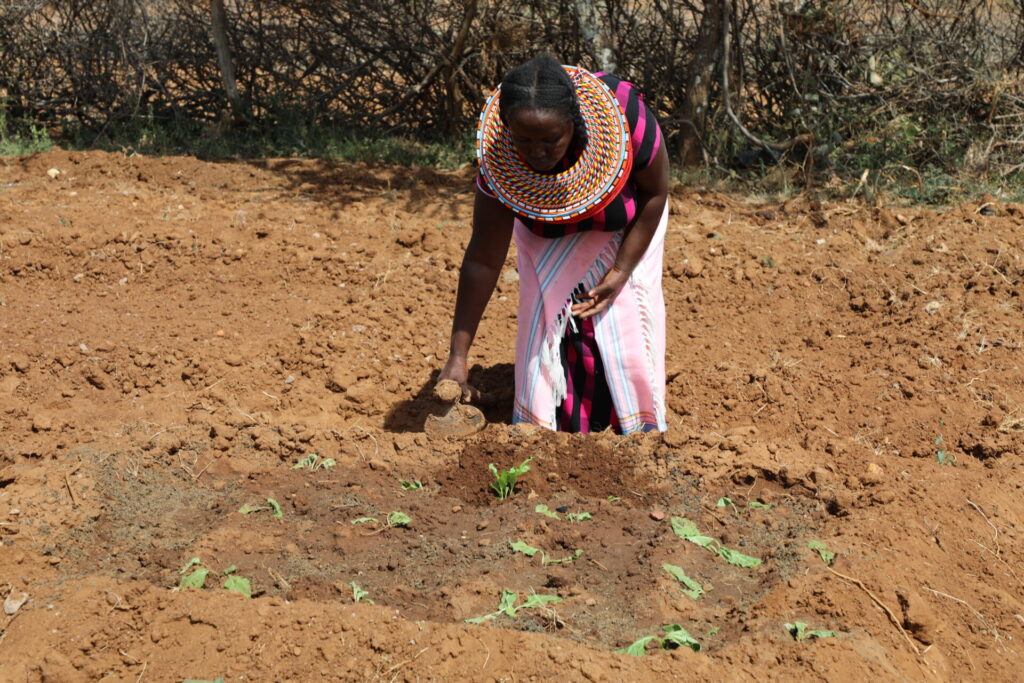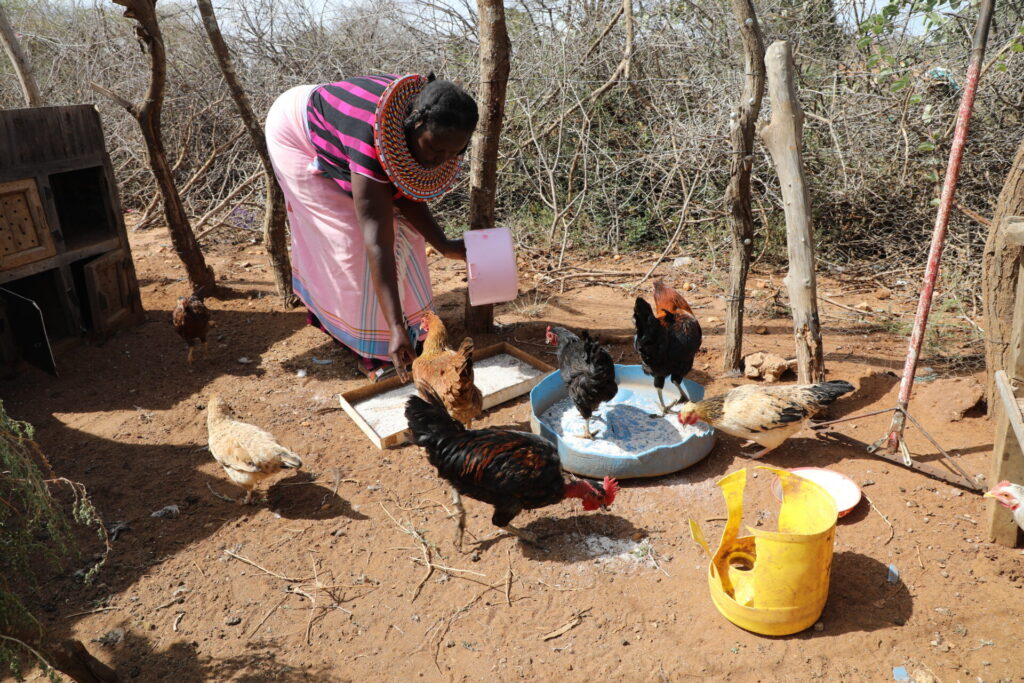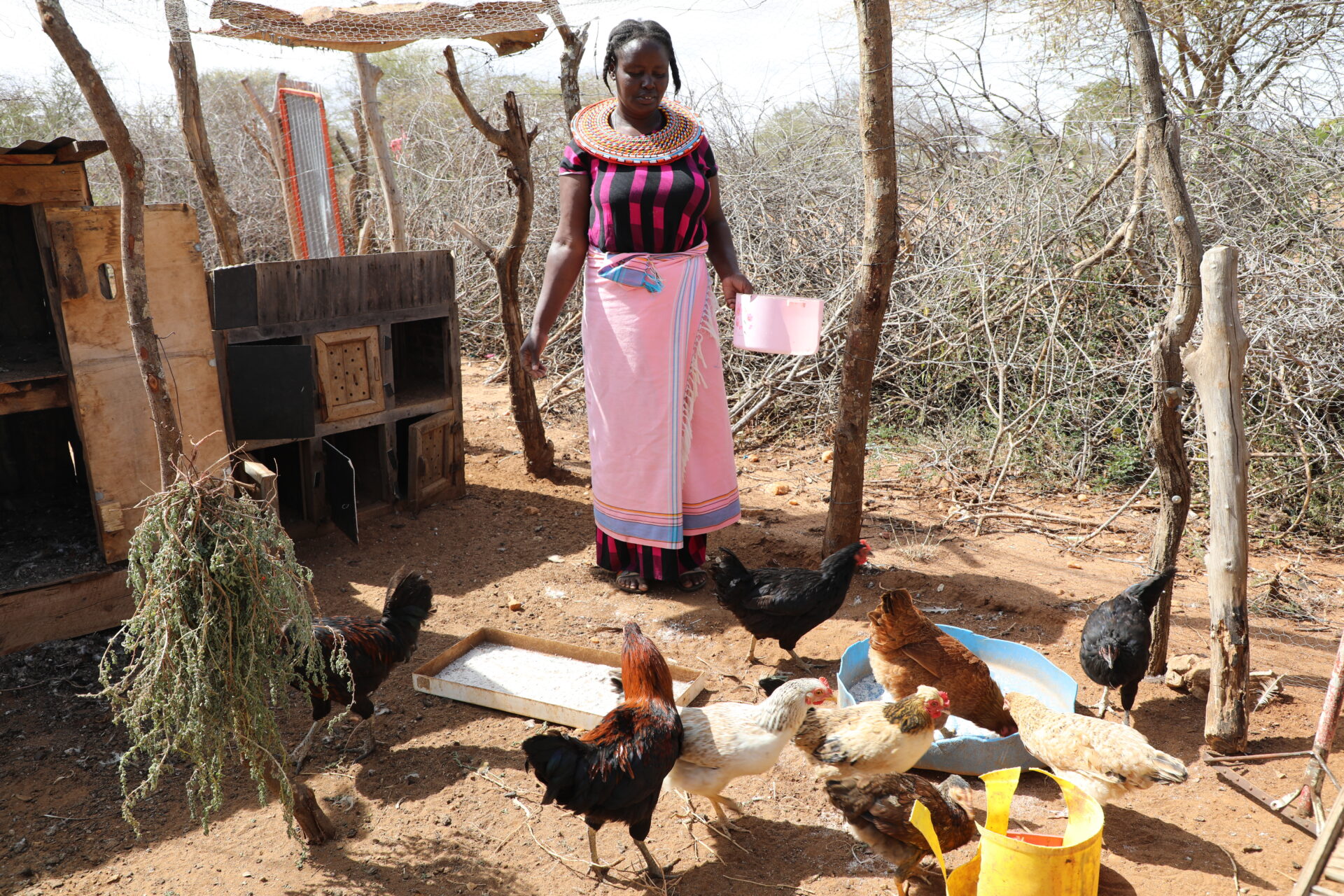
Mary Leleruk is a Maasai woman who lives in the heart of Naibunga Lower Community Conservancy in Laikipia County. She has been practicing beading for many years and has been training others in the art as well. In Maasai culture, beading has always been integral to women’s daily life. However, chicken rearing was traditionally considered an enterprise of low value compared to larger stock such as cattle and was thus overlooked. Mary, too, did not prioritize it in her homestead.
However, a transformative opportunity emerged in 2021 through the support of USAID Local Works and the Ufugaji Bora Mashinani program recognized the potential of poultry production training targeting sixty women and youth. This aimed to introduce poultry training to change their perception towards chickens and to provide them with skills and opportunities to increase their household income. Additionally, it aimed to diversify livestock value chains.

Selected among sixty women through the Ufugaji Bora Mashinani program, Mary delved into intensive training. This changed her perception of poultry rearing. She absorbed knowledge on building poultry houses, safeguarding against diseases, and crafting nutritious feeds from local resources. Maggots, rich in protein, became a staple ingredient sourced from cow dung.
Armed with newfound knowledge, Mary erected a modern chicken house and welcomed ten improved Kienyeji chickens. The once un-valued chicken now yields a steady supply of protein-packed eggs, nourishing her family. Chicken manure, once disregarded, breathed life into a thriving kitchen garden, yielding vibrant greens and vital iron.

Oldonyiro town became the stage for Mary’s entrepreneurial spirit. Her eggs and fresh vegetables, coveted for their quality, command a premium, fetching Ksh. 600 per sale. With her earnings, she paves the way for her children’s education and secures essential household provisions.
In Mary’s eyes, chickens are no longer mere birds but vital contributors to her family’s well-being. Her voice resounds with conviction, urging other women to embrace poultry farming, recognizing its power to fortify diets and alleviate financial burdens.
“As a Maasai, I never understood the value of chickens in our homesteads. Now, if anyone tries to dissuade me, I’d consider them my adversary. These birds have revolutionized my family’s nutrition. They’ve lightened the load of school fees for my husband and me,” Mary declares.

Poultry farming, she learned, is a beacon of stability, less vulnerable to nature’s effects compared to traditional herding. Mary Leleruk dared to step beyond convention, melding her beadwork expertise with a newfound poultry passion. In doing so, she elevated her family’s fortunes and forged a path to self-reliance.

